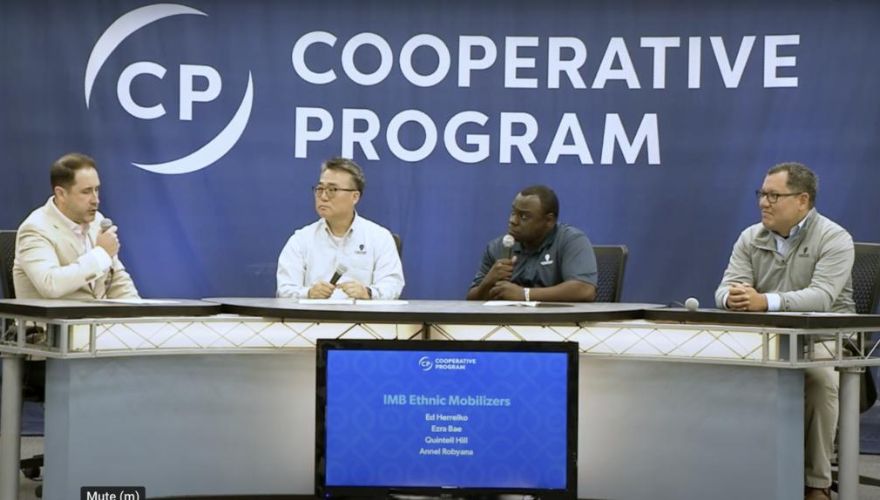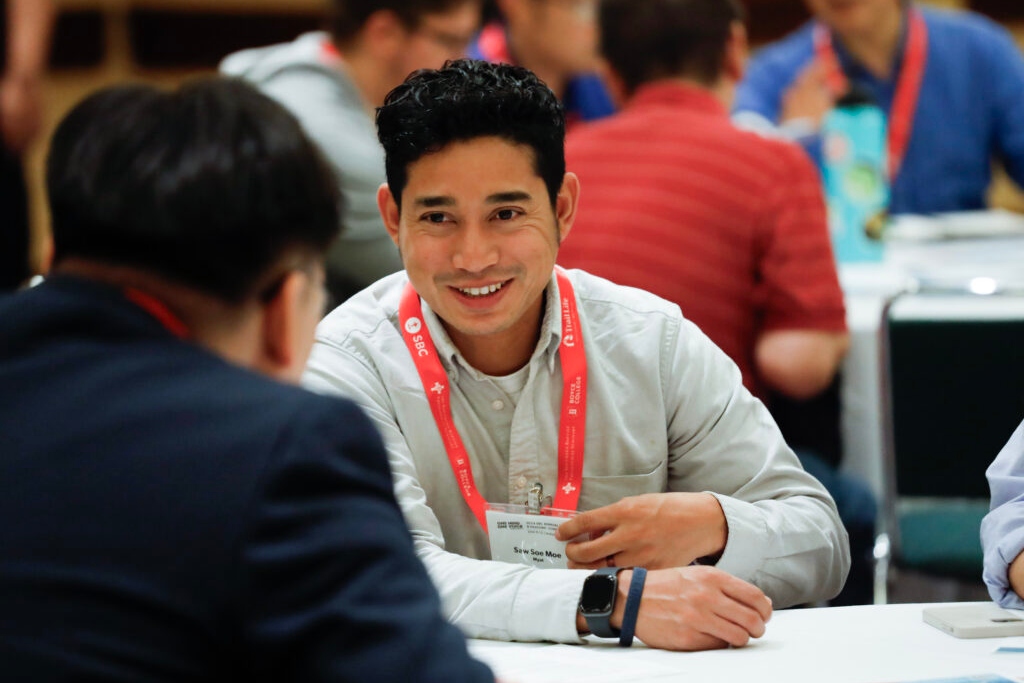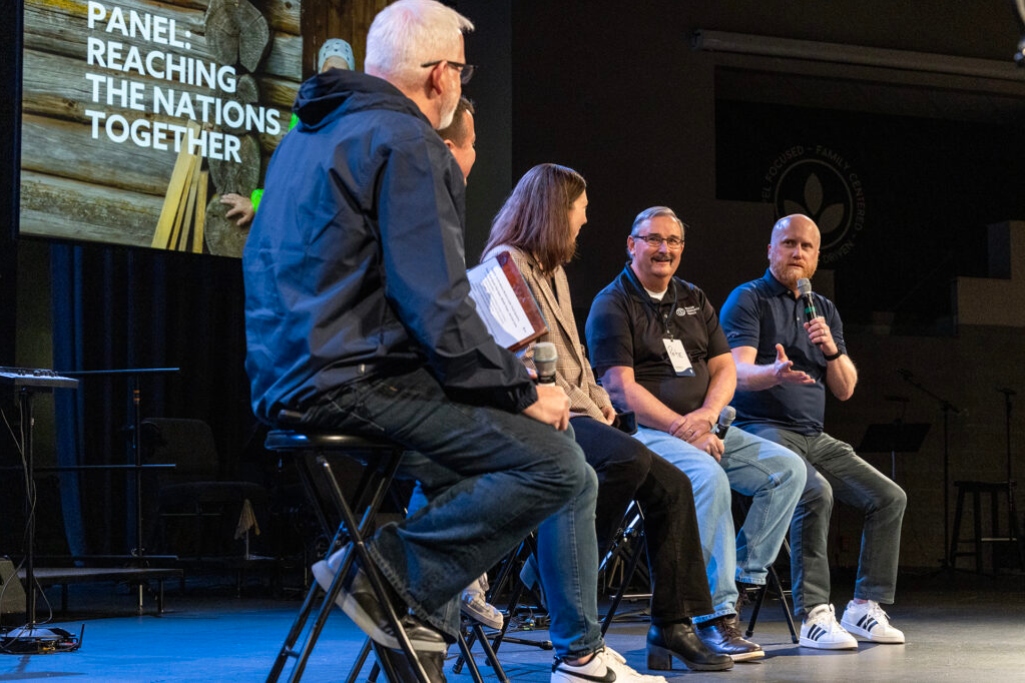
INDIANAPOLIS (BP) — Anyone can leverage the gifts God has given them to reach the nations with the gospel, said the International Mission Board’s (IMB) three ethnic mobilizers during a panel discussion in Indianapolis.
Hosted by IMB Vice President of Marketing and Communications Ed Herrelko, the panel featured IMB’s Asian, African American and Hispanic church mobilizers — Ezra Bae, Quintell Hill and Annel Robayna, respectively.
The three men are tasked with helping churches of various ethnicities and cultures within the Southern Baptist Convention (SBC) realize the missions opportunities available through the IMB and then get involved. The discussions took place on the Cooperative Program (CP) Stage in the exhibit hall of the 2024 SBC annual meeting at the Indiana Convention Center.
Hill said there are just under 4,000 predominantly African American Southern Baptist churches.
“And I want them to really get this passion,” he said. “Like Carl F. Henry said — the gospel is only good news if it gets there in time. And so, I think there needs to be a sense of urgency about the mission.”
He wants to see African American Southern Baptists have a “white hot passion” for the lost and to know that “we can go.”
The more than 2,100 Asian Southern Baptist churches contain members from 27 different countries and worship in more than 40 different languages, Bae said. From those churches, there are 297 missionaries currently serving with the IMB.
“Therefore, it is absolutely important for Asian Baptist churches to participate in CP and LMCO [Lottie Moon Christmas Offering],” he said. Currently, about half of Asian churches participate in CP.
Bae added that Asian churches want to send missionaries all over the world, not just to Asia.
Robayna told about growing up as the son of church planters in Venezuela, seeing God’s “sovereign work” grow a church from only one or two people.
“That really impacted my life,” he said.
Now, as he mobilizes Hispanic churches to be involved in worldwide missions, one challenge is that often there are people from various Hispanic cultures meeting together as one church.
“With the challenge comes opportunity,” he said, “to experience different cultures at once every single week, which means they’re ready to go … overseas and be flexible among different cultures.”
Hill said something that has stood out in his short tenure at IMB (he took the role earlier this year) is that “the heart of the IMB is for all people to go.”
“No matter what color you are — we need people across the sea.,” he said. “We need to get to the places that are unreached.”
All the panelists stressed that the missionary task is for everyone.
“People need to know that God can use whatever gift they have,” Hill said, adding that he would like to see people “put their yes on the table, and the Lord will equip them to be able to do what they need to do.”
People don’t need to know a foreign language or have a “degree in missiology,” he said. They just have to say yes to the Lord, “and we’ll get them there.”
Robayna affirmed that idea, recounting his own experience in Senegal.
“The immediate connection that I had with the Senegalese wasn’t the language,” he said. “It was music. … I encourage others that have different talents and gifts … God can use those talents in the mission field for His glory.”
Herrelko highlighted the IMB’s role in helping people answer the call.
“The IMB hasn’t always been good historically about explaining that we can take you from where you are, and no matter what, you can be someone that goes out and proclaims the gospel and takes the gospel to the lost,” he said.
(EDITOR’S NOTE — Laura Erlanson is managing editor of Baptist Press.)


